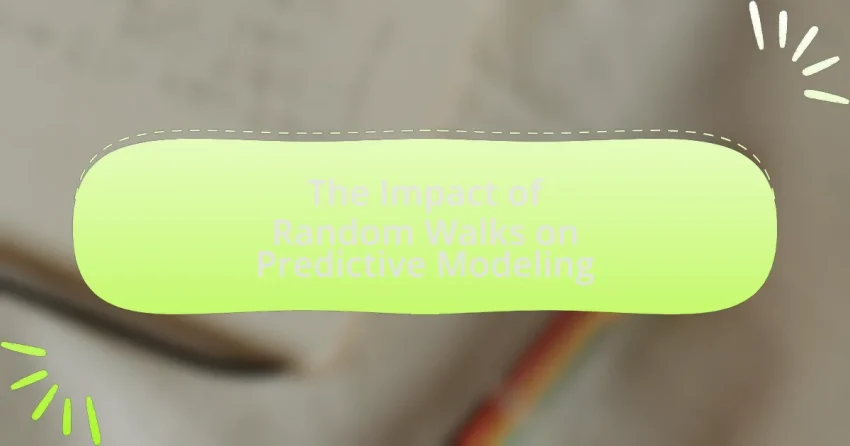Random walks are stochastic processes characterized by a series of random steps, widely utilized in predictive modeling to analyze time series data, particularly in finance and economics. This article explores the definition and mathematical principles underlying random walks, their significance in predictive modeling, and their applications across various fields. It also addresses the limitations and…
Understanding the Role of Markov Chains in Stochastic Processes
Markov Chains are mathematical systems that transition between states based solely on the current state, embodying the Markov property. This article explores their significance in stochastic processes, highlighting their applications in various fields such as finance, telecommunications, genetics, and machine learning. Key characteristics of Markov Chains, including their memoryless property, transition probabilities, and state space,…
The Importance of Stationarity in Time Series Analysis
Stationarity is a fundamental concept in time series analysis, defined as the property where the mean, variance, and autocorrelation structure of a time series remain constant over time. This article explores the significance of stationarity for accurate modeling and forecasting, emphasizing its role in preventing misleading results from non-stationary data. Key topics include the characteristics…
The Relationship Between Stochastic Processes and Machine Learning Algorithms
Stochastic processes are mathematical frameworks that describe systems evolving over time with inherent randomness, while machine learning algorithms are computational methods that enable systems to learn from data. The article explores the critical relationship between these two concepts, highlighting how stochastic processes underpin various machine learning techniques, particularly in modeling uncertainty and variability. Key topics…
The Role of Ergodicity in Long-Term Predictions
Ergodicity is a fundamental concept in statistical mechanics and various fields, defined as the property of a system where time averages and ensemble averages are equivalent. This article explores the significance of ergodicity in long-term predictions, emphasizing its role in ensuring that observations over time can be generalized to forecast future states. Key characteristics of…
Trends in the Use of Stochastic Processes in Environmental Science
Stochastic processes are mathematical models that describe systems evolving over time in a probabilistic manner, playing a crucial role in environmental science for modeling complex phenomena such as climate change, population dynamics, and pollutant dispersion. This article explores the relevance of stochastic processes in environmental modeling, highlighting their ability to incorporate randomness and uncertainty, which…
Innovations in Teaching Stochastic Processes: A Case Study Approach
The article focuses on innovations in teaching stochastic processes, emphasizing the integration of technology and case study methodologies to enhance student engagement and understanding. It outlines the evolution of teaching methods from traditional lectures to interactive, case study-driven approaches that promote active learning and real-world application of theoretical concepts. Key innovations discussed include the use…
Teaching Stochastic Processes through Computational Methods
Teaching stochastic processes through computational methods focuses on the integration of mathematical concepts that describe systems evolving over time with inherent randomness. The article outlines the significance of stochastic processes in various fields, emphasizing their role in modeling uncertainty and enhancing analytical skills. It discusses the differences between stochastic and deterministic processes, key characteristics of…
Future Trends in Simulation Techniques for Stochastic Processes Education
The article focuses on future trends in simulation techniques for stochastic processes education, highlighting the integration of artificial intelligence, machine learning, and cloud computing to enhance predictive modeling and accessibility. It discusses the significance of interactive and hybrid simulations in improving student engagement and learning outcomes, as well as the role of interdisciplinary collaboration in…
The Impact of Initial Conditions on Stochastic Simulations
Initial conditions are critical starting values or states in stochastic simulations that significantly influence the outcomes of the modeled systems. This article explores how initial conditions affect the trajectory, variability, and reliability of simulation results across various fields, including finance and weather forecasting. It discusses the sensitivity of stochastic models to these conditions, the types…









